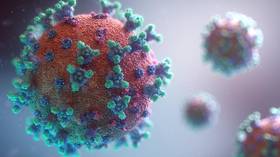Biden bans travel from South Africa as Omicron variant spreads
The US has imposed restrictions on incoming travel from South Africa and seven neighboring countries, in a bid to prevent the spread of the ‘Omicron’ variant of Covid-19, according to media reports.
The travel ban covers South Africa and seven other countries in the region: Botswana, Zimbabwe, Namibia, Lesotho, Eswatini, Mozambique and Malawi.
News of the ban was announced by President Joe Biden on Friday, who said in a statement that he made the decision to restrict travel following a morning briefing with White House Chief Medical Advisor Dr. Anthony Fauci.
Hours before the ban was announced, Fauci said publicly that the government needed to “find out more information” before restricting travel from these countries. Earlier on Friday, the EU and UK barred incoming travel from the affected countries, while Canada announced a ban of its own later in the afternoon.
The ban will come into effect from Monday, and will not apply to American citizens or lawful permanent residents. However, reports indicate that Americans coming from the affected countries will need to show a negative Covid-19 test before traveling.
The new B.1.1.529 variant of the coronavirus was first identified in Botswana, and within days became the dominant variant in parts of South Africa, eclipsing the previously ubiquitous ‘Delta’ variant. It has since reached Europe, Asia and the Middle East, and following a meeting on Friday, was named ‘Omicron’ by the World Health Organization (WHO).
Omicron is characterized by the high number of mutations in its spike protein - the part of the virus which protrudes on the surface, appearing like spikes, and determines how the pathogen infects its hosts. The WHO called some of these 32 mutations “concerning,” and said in a statement on Friday that the new variant presents “an increased risk of reinfection.”
It is suspected, though not known for sure, that the Omicron variant may be more resistant to the current crop of Covid-19 vaccines. According to the government of Botswana, the first four cases of the new variant were recorded in patients who had been fully vaccinated.
However, Biden insisted on Friday that “this pandemic will not end until we have global vaccinations.”















